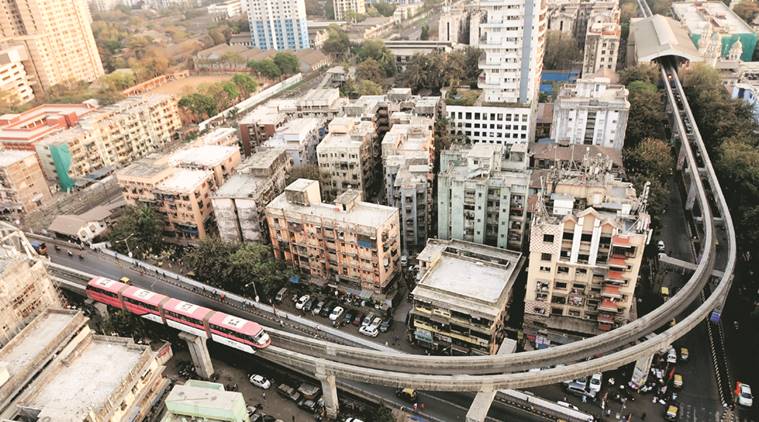
WITH the monsoon expected to arrive in Mumbai next month, work on all sections of the Colaba-Bandra-Seepz Metro rail, India’s only fully underground Metro route, has gathered speed. Of the total 52.21 km of tunnelling to be undertaken for the Colaba-Bandra-Seepz Metro, as much as 23.69 km of tunnelling is complete as of March-end.
Of the total 49,78,126 cubic metres of soil to be excavated, 31,27,343 cubic metres has been done so far. Nine of 32 ‘breakthroughs’ of the 17 tunnel boring machines are complete and more are lined up in coming weeks. Of 37,433 segment rings of concrete to be fixed in the tunnels, 26,385 are complete.
A parallel task is the successful transportation of the hundreds of tonnes of muck, boulders and soil being excavated by the tunnel boring machines and excavators at the sites of the stations along the route.
Data from the Mumbai Metro Rail Corporation ltd (MMRCL) shows that an average of 8,000 cubic metres of muck is excavated everyday from the 26 underground stations along the 33.5-km route. In addition, about 3,500 cubic metres of muck is excavated by the 17 TBMs that have been lowered into 10 tunnel shafts. At an average of 10 cubic metres to a truck, that is about 1,100 truck trips a day — only to dispose of muck from the city’s first underground Metro rail route.
“The muck is the property of the contractors,” said S K Gupta, Director (Operations) at MMRCL. “We know some of this muck has been requested by the MBPT and some for the coastal road project.” The MMRCL has also made available abandoned quarries in Palghar and Thane districts to dispose of any muck that a contractor is not monetising. While the TBMs grind down the muck to a fine consistency, the station excavation yields larger boulders along with soil. Fifteen engineers and 85 technicians work on each TBM, with each machine consuming about 2,000 units of power per hour.
“On average, each machine consumes 4.5 lakh units of power per month,” said Gupta.